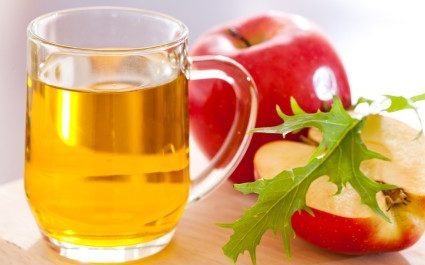Cloves have been used in traditional medicine for centuries due to their numerous health benefits. Not only do they add flavor to our meals, but they also offer a wide range of medicinal properties. In this article, we’ll explore 20 health benefits of cloves and how you can incorporate them into your diet.
What are Cloves?
Cloves are the aromatic flower buds of the clove tree, native to Indonesia. They are a popular spice widely used in culinary dishes and have various medicinal properties.
Cloves have a strong and pungent flavor and are commonly used in sweet and savory dishes. They can be used whole or ground and are often paired with other spices like cinnamon, nutmeg, and allspice.
The Nutritional Value of Clove
Clove is a rich source of several essential vitamins and minerals. One gram of clove contains:
- Calories: 2.2
- Carbohydrates: 0.47g
- Fiber: 0.3g
- Protein: 0.09g
- Fat: 0.02g
- Vitamin C: 3% of the RDI
- Vitamin K: 4% of the RDI
- Calcium: 1% of the RDI
- Iron: 1% of the RDI
- Magnesium: 1% of the RDI
- Manganese: 8% of the RDI

20 Proven Health Benefits of Clove
Clove offers several health benefits. Some of the key benefits are:
1. Boost Gastrointestinal Health
Clove has been traditionally used as a natural remedy for various ailments, including digestive issues. Cloves contain compounds that may help boost gastrointestinal health by promoting healthy digestion and reducing inflammation in the gut.
Eugenol in cloves has anti-inflammatory and antioxidant properties. It can help protect the lining of the stomach and intestines from damage and reduce inflammation.
Additionally, the essential oil of clove has antimicrobial properties that may help prevent the growth of harmful bacteria in the gut.
2. Antibacterial Properties
The essential oil of clove contains a compound called eugenol, which has been shown to have antimicrobial activity against a wide range of bacteria.
Research has demonstrated that clove oil can inhibit the growth of various strains of bacteria, including Escherichia coli (E. coli) and Staphylococcus aureus (S. aureus). Clove oil has also been effective against the bacteria responsible for dental plaque and gum disease.
In addition to its antibacterial properties, clove oil has antifungal and antiviral activity, making it a versatile natural remedy for various infections.
3. Protect Your Liver
Clove contains several essential nutrients for bone health, including calcium, magnesium, and vitamin K. These nutrients are essential for maintaining bone density and preventing bone loss, which can help reduce the risk of osteoporosis and fractures.
In addition, cloves contain flavonoids and other compounds that may help stimulate bone growth and prevent the breakdown of bone tissue.
4. Control Diabetes
Cloves contain compounds that may help regulate insulin and glucose metabolism in the body. This makes it a beneficial natural remedy for managing diabetes.
Studies have shown that cloves or clove extract can help improve insulin sensitivity and lower blood sugar levels. The active compounds in cloves, including eugenol, have been shown to stimulate insulin secretion and enhance glucose uptake in cells.
In addition, the antioxidant properties of cloves may help protect against the cellular damage that can contribute to diabetes complications.
5. Preserve Your Bones
The hydro-alcoholic extracts of cloves include phenolic compounds, such as eugenol, and their derivatives, such as flavones, isoflavones, and flavonoids.
Studies found that these extracts can help preserve bone density and the mineral content of bones. In addition, it can increase the tensile strength of bones in case of osteoporosis.

6. Boost Your Immune System
One of the active compounds in cloves is eugenol, which has been shown to have anti-inflammatory properties. This may help reduce the risk of developing chronic inflammation and support immune system function.
In addition, Cloves also contain flavonoids and other antioxidants that can help protect against cellular damage and support overall health.
7. Reduce Inflammation and Pain
Studies have shown that clove extract and essential oil can help reduce inflammation and pain in various body parts, including the gums, teeth, and joints. The anti-inflammatory properties of cloves may also help reduce the risk of developing chronic inflammation.
In addition, Clove oil can be used topically to relieve pain and inflammation in sore muscles and joints. It can also be used as a natural remedy for toothaches and gum pain by applying a small amount directly to the affected area.
8. Improve Your Oral Health
Studies have shown that clove oil can effectively reduce dental pain and inflammation. The antiseptic properties of cloves may also help reduce the risk of developing infections in the mouth.
Clove oil can be used topically as a natural remedy for toothaches and gum pain. It can also be added to mouthwash or toothpaste to help maintain healthy teeth and gums.
Cloves have a strong, pleasant aroma that can help mask the odor-causing bacteria in the mouth. Chewing on cloves can help freshen your breath and reduce the risk of developing bad breath.
9. Enjoy Aphrodisiac Properties
Clove has been traditionally used as an aphrodisiac and may offer potential benefits for enhancing sexual desire and performance. It contains several compounds, including eugenol and other essential oils, that stimulate the body.
Clove oil can be a natural remedy for enhancing sexual desire and performance. It can be used in massage oils, diffused in the air, or added to a warm bath to create a sensual and relaxing atmosphere.

10. Ease Headaches
Studies have shown that clove oil can effectively reduce tension headaches and migraine headaches. The analgesic properties of cloves may also help reduce the severity and frequency of headaches.
Clove oil can be used topically as a natural remedy for easing headaches. It can be applied to the temples or forehead and gently massaged in a circular motion to help alleviate pain and tension.
In addition, cloves can also be used as a natural remedy for sinus headaches. The anti-inflammatory properties of cloves may help reduce inflammation in the sinuses, which can help alleviate pain and pressure.
11. May Help with Respiratory Infections
Cloves contain compounds that have been shown to have antimicrobial and anti-inflammatory properties, which may make them helpful in treating respiratory infections.
Clove extracts are effective against several bacteria and fungi that cause respiratory infections, such as Streptococcus pneumonia and Aspergillus niger.
12. Help in Weight Management
Cloves may be helpful in weight management due to their ability to regulate metabolism. In one study published in the Journal of Medicinal Food, researchers found that extracts of cloves helped to increase the metabolic rate of rats, leading to increased energy expenditure and weight loss.
Clove oil can be added to food or used in cooking to enhance flavor and promote satiety. The metabolic benefits of cloves may also help boost energy levels and promote physical activity, which can further support weight management goals.
13. It May Improve Skin Health
Cloves have been used for centuries in traditional medicine for their skin-healing properties. Clove oil contains eugenol, a compound that has antifungal and antibacterial properties.
It has been used to treat skin conditions such as acne, psoriasis, and eczema. Furthermore, cloves are a rich source of antioxidants that can help protect the skin from damage caused by free radicals.
14. Help with Menstrual Issues
Cloves have been used traditionally to treat menstrual problems such as cramps and irregular periods. According to a study published in the Journal of Natural Products, clove extracts can help regulate the menstrual cycle and reduce menstrual pain.
The study found that administering clove extracts to rats significantly decreased uterine contractions and pain associated with menstruation.
15. Improve Cardiovascular Health
Cloves have been found to have beneficial effects on cardiovascular health. They contain compounds shown to have anti-inflammatory and anticoagulant properties, which may help prevent heart disease.
Clove extracts have also been found to lower blood pressure and improve blood lipid profiles, which are risk factors for heart disease.

16. Reducing nausea
Cloves are a natural remedy that may help reduce nausea. Various factors, such as motion sickness, pregnancy, or chemotherapy, can cause nausea.
Cloves contain compounds, such as eugenol, that have been shown to have anti-inflammatory and analgesic properties, which can help alleviate nausea and vomiting.
One way to use cloves to reduce nausea is by chewing on whole cloves. Alternatively, you can make tea by simmering cloves in water and then straining it. Adding a few drops of clove oil to a diffuser can also help alleviate nausea and create a relaxing atmosphere.
17. Aid in Wound Healing
Cloves have been traditionally used as a natural remedy for wound healing. This is because they contain anti-inflammatory and analgesic compounds, which may help reduce pain and inflammation and promote healing.
In one study published in the Journal of Investigative Surgery, researchers found that clove oil helped to promote wound healing in rats by reducing inflammation and increasing collagen synthesis.
19. Freshening breath
Cloves are a natural remedy that can help freshen breath. Cloves’ strong and aromatic flavor can help mask bad breath and fight the bacteria that cause it.
One way to use cloves to freshen your breath is to chew on a few whole cloves simply. This can help release the aromatic oils and provide a long-lasting freshening effect.
Another way to use cloves is to make a mouthwash. You can steep a few cloves in hot water and let them cool to room temperature. Then, use the clove-infused water as a mouthwash, swishing it around in your mouth for a few minutes before spitting it out.
20. Can Boost Brain Function
Cloves contain compounds that have been shown to have neuroprotective effects, meaning that they may help to protect the brain from damage and improve cognitive function.
One study published in the Journal of Alzheimer’s Disease found that eugenol, a compound found in cloves, helped to improve memory and cognitive function in mice with Alzheimer’s disease.
How to Use Clove?
There are several ways to use cloves, both for culinary and medicinal purposes. Here are some ways that you can use cloves:
1. Culinary uses
Cloves can be used in various culinary dishes, such as stews, soups, marinades, and baked goods. You can use whole cloves or ground cloves, depending on the recipe. Cloves pair well with other spices like cinnamon, nutmeg, and allspice.
2. Medicinal uses
Cloves have been used for centuries for their medicinal properties. You can use cloves in various forms, such as whole cloves, ground cloves, or clove oil. Cloves can relieve pain, reduce inflammation, fight infections, and freshen your breath.
3. Aromatherapy
Clove oil can be used in aromatherapy to create a relaxing and soothing atmosphere. You can add a few drops of clove oil to a diffuser or mix it with a carrier oil and use it for massage or in a bath.
4. Dental care
Cloves can be used for dental care to relieve toothache and freshen breath. You can chew on a few whole cloves or use clove oil as a mouthwash.

How to Incorporate Clove into Your Diet?
There are several ways to incorporate cloves into your diet to enjoy their flavor and potential health benefits:
- Add to hot drinks: You can add a sprinkle of ground cloves to your hot tea, coffee, or hot chocolate for a warming and aromatic flavor.
- Use in baking: Cloves pair well with baked goods like pumpkin pie, gingerbread cookies, and fruitcakes. You can add ground cloves to your batter or sprinkle some on top before baking.
- Use in savory dishes: Cloves can add depth and complexity to savory dishes like stews, curries, and marinades. You can add whole or ground cloves to your recipe, but be sure to use them in moderation.
- Make spiced nuts: You can toss nuts like almonds, pecans, or cashews with a blend of ground cloves, cinnamon, and sugar for a delicious and healthy snack.
- Use in spice blends: You can make your spice blend using cloves, cinnamon, nutmeg, and allspice for a versatile seasoning that can be used in various dishes.
Precautions and Side Effects
When using cloves for culinary or medicinal purposes, it’s essential to keep in mind some precautions and potential side effects. Here are some things to consider:
- Allergic reactions: Some people may be allergic to cloves and experience symptoms like itching, swelling, or difficulty breathing. If you experience any of these symptoms after using cloves, stop using them immediately and seek medical attention.
- Stomach upset: Cloves may cause stomachs upset or gastrointestinal issues like diarrhea or nausea, especially if taken in large amounts. It’s essential to use them in moderation and talk to your healthcare provider if you have any concerns.
- Blood thinning: Cloves may have blood-thinning properties and interact with certain medications like blood thinners. If you are taking any medications, talk to your healthcare provider before using cloves for medicinal purposes.
- Pregnancy and breast-feeding: Cloves are not recommended for pregnant or breastfeeding women, as their safety has not been established.
Conclusion
Clove is a versatile spice that offers several health benefits. It can relieve pain, improve digestion, boost immunity, and promote bone health.
Clove can be used in various ways, including culinary, topical, oral, and aromatherapy. However, using clove cautiously and following the recommended dosage is essential to avoid side effects.





